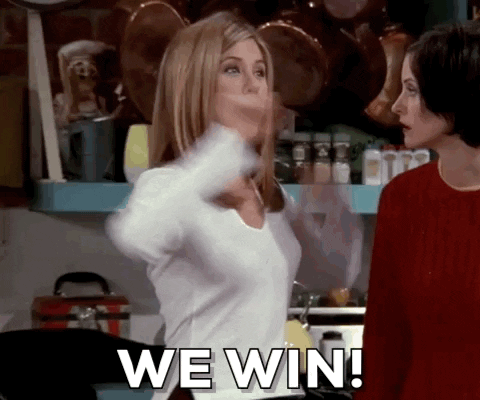I Screwed Up...
...and something beautiful happened. Reflections on ADHD, anxiety, and what’s possible when we stop letting hyper-vigilance run the show.
The text that took me down
Recently, I hurt someone I love.
Not on purpose. And not in a big way — but in a "it hurt me that you didn’t consider how this would impact me" way. Upon reading their text, that familiar world-ending, heart-sinking, soul-shattering feeling hit me — the kind I now recognize as ADHD rejection sensitivity. But then, riding in on its coattails, a new thought:
"See? This. THIS is why you need me. I would’ve caught that and we wouldn't be in this mess."
Ah — hello, old friend. Anxiety.
Letting Go of the Mask (and Facing the Fallout)
As I continue the work of unmasking my ADHD and healing my nervous system, I’ve noticed the hyper-vigilance and anxiety I once relied on to navigate the world is beginning to slip away. Where I used to move through life led by anxious, approval-seeking parts — constantly fawning, afraid of getting it wrong — I’m now learning to feel a bit more at ease with those parts no longer in charge, meaning I’m not always running mental simulations of how my words or actions might ripple out into a thousand worst-case scenarios.
And while that shift has brought more ease, authenticity, and a deepening sense of liberation…it’s also brought with it something a little less desirable: more fuck-ups.
Brains (especially the ADHD kind) aren’t built for perfection
The reality of living with my beautiful (but chaotic) ADHD brain means I often forget things. I act impulsively. I get lost in my own inner world. And while that inner world is rich — and why things like this blog even exist — it also means I miss things that others naturally pick up on or consider without having to think about. These behaviours often get interpreted as careless, thoughtless, or selfish. And sometimes, they simply result in the unintentional hurt feelings of someone we love.
The kicker? The impact of this would be difficult for anyone — but for those of us with ADHD and its heightened sensitivity to rejection (to put it lightly), it often becomes a recipe for eventual nervous system collapse.
Especially when the solution — crafted long ago in our still-developing child brains — is to do everything in our power to never…
(ever)
EVER.
Mess up.
An impossible task for any human. But for a human with an ADHD brain?
Also impossible.
And soul-crushing,
So when I received that text from my loved one, my anxiety didn’t miss a beat and reminded me — smugly — that under her watch, we would never have ended up in this uncomfortable moment. The kind of moment that makes me want to crawl out of my own skin.
The worst part?
She wasn’t wrong.
If I were still living from that old place — constantly scanning my environment for any sign of social threat, replaying interactions on loop, obsessing over what I might have done wrong or what I could have done better — this text likely wouldn’t have found its way to my phone.
And so, sitting in the car, looking at my phone, listening to my anxiety’s scolding words, I felt myself shrink. Until something unexpected stirred.
Another voice. This time in response to the anxiety. Quieter, but just as firm and with a bit of attitude I couldn’t help but love:
“OR… you could ease up on me. And stop making my mistakes feel so unbearable.”
Beyond the false binary
As I heard those words rise up from somewhere deep inside, a flash of clarity cut through the noise. Maybe the solution I landed on at age seven was due for revision.
Maybe, MAYBE, there was a third option beyond the false binary I had created as a child: to either live as my messy, impulsive, "careless" self and risk rejection — or mask up, live in a constant state of anxiety, and avoid the pain of messing up (at least most of the time).
What if I lived unmasked — unruled by my anxiety — and surrendered to the fact that living with my brain means mistakes will happen? My friends might get their birthday texts a day (or three) late. I might forget the details of someone's story and unintentionally make them feel like I don’t care. And I might most definitely will break things.
But what if, WHAT IF, when these things happened, I didn’t double down on the shame?
What if I trusted that the people who know and love me — really love me — know my heart, know my soul, and know that they are good?
And what if the people who don’t know or love my heart and soul — who can’t see the qualities that more than make up for my poor working memory or impaired sense of time — didn’t have to be okay with me every second of the day?
What if a stranger (or even an acquaintance) had a fleeting thought that I’m inconsiderate or careless…and the world did not come to a crashing halt?
Can you imagine?
What is actually the problem?
Because what if the pain - the unsafety of it all - wasn’t in the mistake, but in my internal experience — in the way I react when I make one?
The irony of it all is this: the hyper-vigilant, anxious part of me that is so determined to "protect" me from the pain of making a mistake… is also the one making the mistake feel so painful in the first place.
These young parts of us build elaborate strategies: hyper-vigilance, perfectionism, anxiety. Their logic is simple but misguided — “If we make the consequences of messing up unbearable, maybe we’ll stop messing up altogether.” So they crank up the shame, hoping fear will keep us in line.
It’s like they burst into the scene as firefighters — but they’re the ones who lit the match. They spark the shame, then rush in with anxiety and control, convincing us it’s the only way to avoid getting burned, selling us a (quite frankly, shit) solution to a problem they created.
So the invitation I’m making to myself at 32 — and extending to you, dear reader — is this:
Don’t let them light the fire.
Where the real magic is: repair
Oh, and the best part? That momentary rupture with my loved one led to an open and honest phone call — the kind that cracked us open in all the right ways, bringing more clarity, tenderness, and understanding than we’d had in a long time.
Turns out, repair can create deeper connection than perfection ever could.
And you know who gets lots of opportunities for repair? Someone who makes lots of mistakes! So my sweet ADHD’er…
A Tool to Support You
If this resonated with you, I’ve created something I think you’ll find really helpful. My guided meditation, ADHD Rejection Survival Guide: Regulate + Reset, is now available on Insight Timer for free!
It’s designed specifically for moments like these — when you’re in the spiral of shame, stuck in self-criticism, or feeling the sting of rejection. The practice will guide you back to your body, help you regulate, and remind you: you are not broken. You are beautifully, messily human. And you are worthy of grace.






So awesome! Love this reframe of the repair being such a gift of connection with others when we “mess up”
I received the notification for this text when I was going through the a similar experience. I said something using the wrong wording, and it caused pain in someone that I love. The writing helped me to overcome the rejection for causing pain, and I came back a few times for more clarity. I haven't had the chance to use the guided meditation, but I do appreciate it a lot being available for free.